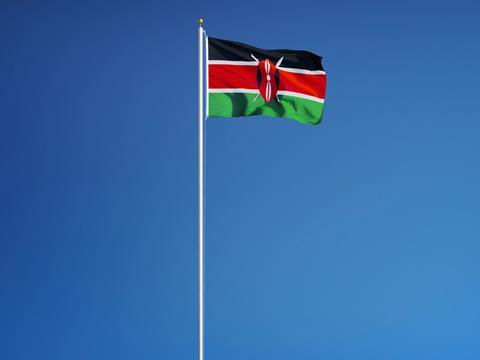
As the third meeting of the Intergovernmental Negotiating Committee (INC-3) draws to a close in Nairobi, the Business Coalition for a Global Plastics Treaty has praised the majority of Member States for their positive contribution – but the Ellen MacArthur Foundation states that “limited formal progress” was made to boost intersessional work or expand on the zero draft text ahead of the treaty’s adoption in 2025.
“Our vision recognises the importance of reducing plastic production and use through a circular economy approach,” the Business Coalition explains, “focusing on plastics with high-leakage rates, that are short-lived, and/or are made using fossil-based virgin resources.”
Most countries attending the event were in favour of a ‘comprehensive and robust treaty’, the Coalition notes, expressing its approval for their efforts. On the other hand, it fears that some negotiators were honing in on downstream measures – failing to tackle upstream developments like improving product design, scaling reuse and refill systems, and phasing out ‘problematic’ plastics and chemicals of concern.
The Coalition emphasizes that recycling and waste management are not silver bullets and cannot singlehandedly bring an end to plastic pollution. It also condemned the removal of key provisions surrounding primary plastic polymers, identification of polymers and chemicals of concern, and a definition of ‘problematic’ and avoidable plastic products in alternative text proposals, fearing that differing views on intersessional work could stall the negotiation process.
Although some topics described by the Coalition as ‘critical issues’ were not discussed at INC-3, it reiterates that many Member States envisioned strong, legally binding provisions that would cover the whole life cycle of plastics. It encourages governments to conduct further consultations ahead of INC-4, at least informally, and underlines its own commitment to ‘work[ing] alongside committed parties and observers in this next stage of developing an ambitious and effective Global Plastics Treaty’.
In its own statement, the Ellen MacArthur Foundation said: “To be effective in ending plastic pollution, the UN treaty needs to be based on legally binding global rules and comprehensive circular economy measures. It is clear that we cannot recycle our way out of the plastic crisis.
“To drive change at scale, it is critical that negotiations focus on obligations and measures that drive innovation upstream and midstream through reduction, redesign, and reuse, in addition to important downstream measures, such as waste management.
“We are encouraged that many Member States taking part in the third round of the Intergovernmental Negotiating Committee (INC-3) in Nairobi expressed support for ambitious provisions, including the elimination of plastic products that are commonly identified as problematic, the emphasis on product design, and Extended Producer Responsibility (EPR). All these elements are essential to eliminate plastic pollution. Additionally, there was support from many Member States for measures that enable a fair, equitable, and inclusive transition, which we support.
“However, we were concerned by some calls to limit the scope of the treaty to downstream measures only, including through removal of treaty provisions on primary plastic polymers. We also hope that treaty text on reuse can be expanded to go beyond product design. To enable the necessary system transformation to scale reuse, it is vital to also establish suitable infrastructure and make the economics work.
“Overall, there was limited formal progress at INC-3 with no mandate for either a formal programme of intersessional work or for the development of the next version of the “zero draft” treaty text. Without these being in place, it will be even more challenging to agree an effective and ambitious treaty in the final two rounds of negotiations.
“However, we urge the delegations not to give up on the ambition shown by many governments at INC-3 and look for ways to progress so that the detailed negotiations can still start at INC-4 in Canada in April next year.
“We remain committed to supporting the negotiations by sharing our insights and expertise, and continuing to champion the need for a UN Treaty based on legally binding global rules and comprehensive circular economy measures to eliminate the plastics we don’t need, innovate towards new materials and business models, and circulate all the plastic we still use to ensure that we realize the vision of a world in which plastic never becomes waste or pollution.”
The statement comes after Rob Opsomer, executive lead of Plastics and Finance at the Ellen MacArthur Foundation, told Packaging Europe that “progress […] is possible” at INC-3. He highlighted the importance of voluntary business action coming hand-in-hand with binding policy and regulation.
Dominic Hogg, director of Equanimator, discussed the value of ‘demystifying’ Extended Producer Responsibility in the latest round of negotiations, fearing that confusion around its definition would discourage key investment.
Riley McCormack, president and CEO of Digimarc, shared the company’s own view that negotiators should “seize this historic opportunity and adopt language requiring digital marking of plastic packaging in the treaty” – a move expected to lead to benefits in Europe and beyond.
If you liked this article, you might also enjoy:
The L’Oréal approach to packaging sustainability
The way we talk about plastic needs to change – here’s how to get it right
What steps is Apple taking to make its packaging more sustainable?














No comments yet